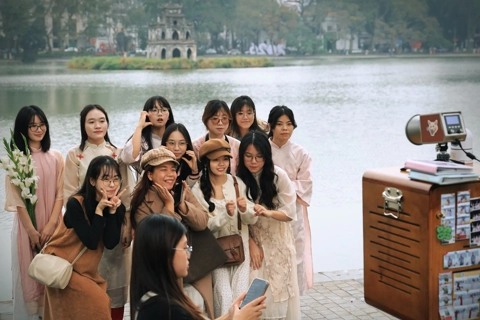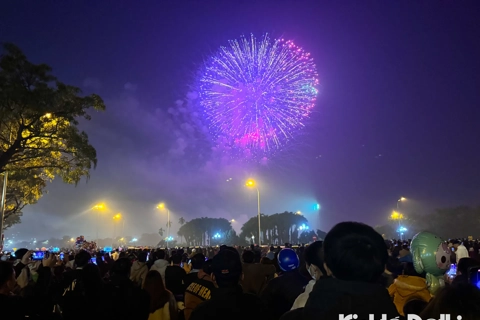Hanoi bridges generations by empowering seniors with digital skills
Hanoi’s Digital Literacy for All campaign targets the elderly and underserved, transforming local classes into catalysts for an inclusive, citywide digital transformation.
THE HANOI TIMES — In a modest classroom tucked inside a cultural center in Cau Giay District, 72-year-old Hoang Van Toan stared wide-eyed at the screen of a smartphone. "I had never used ChatGPT before," he admitted with a grin. "They offer things you won't find in books or on TV. What they can do is truly astonishing."
Around him, nearly two dozen elderly people sat upright at long wooden tables, timidly tapping away at screens, laughter permeating the air as they peppered instructor Dinh Ngoc Son with questions.
Some asked how to edit photos with artificial intelligence tools, while others learned how to ask ChatGPT to write a poem or plan a vacation. One woman asked if he could recommend books for her grandchildren. Curiosity and joy filled the room.
This is one of the many weekly digital skills classes that are now taking root across Hanoi as part of the city’s ambitious Binh Dan Hoc Vu So (Digital Literacy for All) campaign, launched in May 2025. The campaign aims to ensure that no one, regardless of age or background, is left behind in the digital transformation sweeping the capital.
Inspired by President Ho Chi Minh’s Binh Dan Hoc Vu (Mass Education) movement of the 1940s, which aimed to teach basic reading and writing skills to everyone, the campaign seeks to do the same with digital literacy. Today, this modern iteration continues that mission by equipping citizens, especially the elderly and vulnerable, with essential digital skills so they can fully participate in society. It’s an update to Ho Chi Minh’s vision of empowering every citizen with the essential digital skills needed in the 21st century.
Many have gone from being initially hesitant to exploring and experimenting with the digital world, which is a clear sign that digital transformation is reaching deeper into society.
Organized by the authorities of Cau Giay District in partnership with Dinh Ngoc Son, a former lecturer at the Academy of Journalism and Communication, the classes transcend traditional teaching methods. The old people actively participate by asking questions, engaging in discussions, and laughing as they interact with AI tools like ChatGPT and Grok. Generating videos, composing poems, answering queries, and editing photos sparks surprise and genuine curiosity.
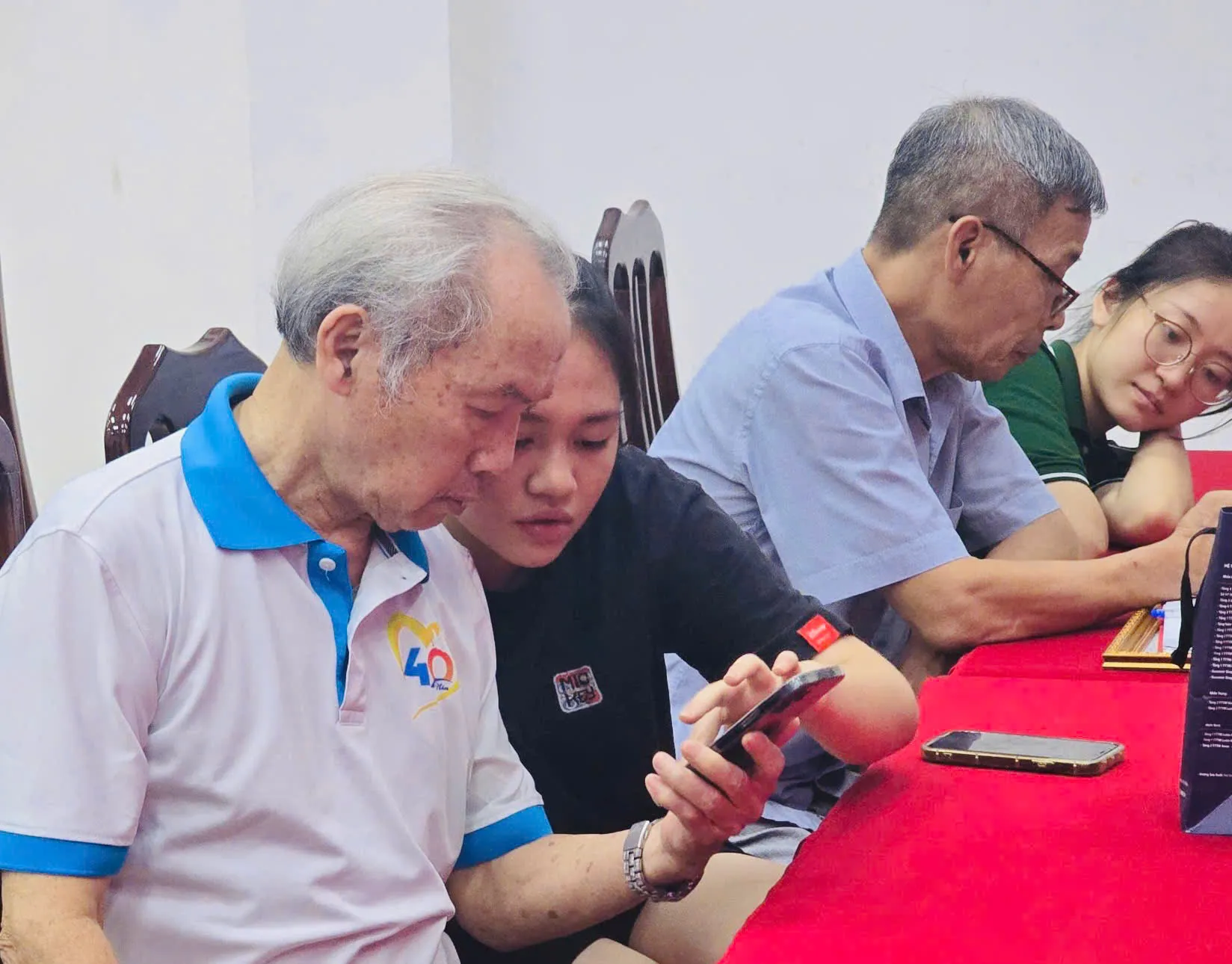
Hoang Van Toan, 71, a Dich Vong Hau Ward resident in Cau Giay District (in the foreground), receives guidance from a volunteer on how to use AI. Photos: Tung Lam/The Hanoi Times
Toan believes that AI is an essential part of modern life and that seniors must learn to use these tools. He hopes the campaign will expand to create more opportunities for older adults to incorporate technology into their daily lives.
“The class is especially engaging because Son does more than just teach technical skills. He focuses on building confidence and encouraging learners to embrace the digital world,” Toan said.
Son said that Toan is just one of many elderly people in a similar situation. “I’m not doing this for myself, but for the elderly, who are often lost in today’s digital world,” he told The Hanoi Times.
He believes that fear of scams or making mistakes prevents many elderly people from engaging with technology, even though they need it the most. With patient guidance, however, he’s confident they can adapt and thrive.
“AI may create generational gaps, but with the right support, seniors can overcome them,” said Son, who shared that he plans to continue organizing similar classes. He is also working on expanding the curriculum to better serve the community's needs.
Kieu Diem Huong, a student at the University of Economics and Business under Vietnam National University and a volunteer at the digital literacy class, told The Hanoi Times that supporting older adults in using AI tools has been both a practical task and a valuable learning experience.
As many learners were unfamiliar with basic digital concepts, such as swiping a screen or recognizing names like ChatGPT and Gemini, Huong said used simple, relatable examples to explain the tools. One memorable moment was helping a veteran make his first video call to his daughter.
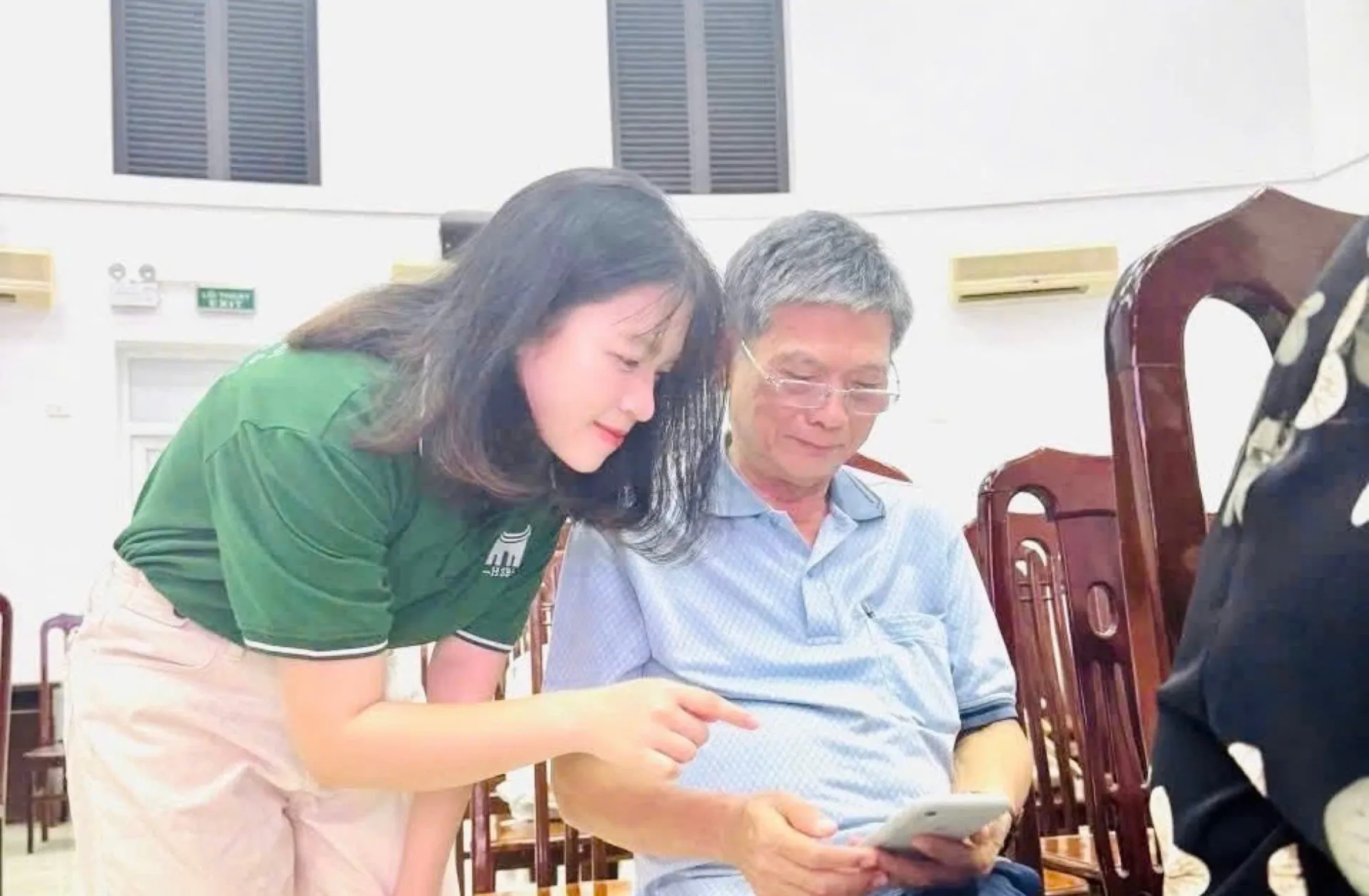
Kieu Diem Huong guides an elderly learner in using ChatGPT during a digital skills class.
“Many older learners showed real determination and a strong desire to stay connected. Some even messaged me after class with follow-up questions, which really showed how meaningful the sessions were for both sides,” said Huong.
Introducing technology with patience and clear explanations can really help bridge the generational gap and strengthen everyday connections.”
From local classes to citywide digital change
This class is part of a campaign launched by Hanoi in May 2025 to help all citizens, especially vulnerable groups, access and use digital technology more effectively.
The campaign is in line with the national "Digital Transformation for All" movement launched by the government and aims to equip every citizen with basic digital skills and ensure inclusive access to technology. From a city-level drive, "Digital Literacy for All" quickly evolved into a broad-based social effort – modern in content and accessible in delivery.
The campaign has spread to urban districts, such as Hoan Kiem, Hai Ba Trung, Dong Da, Cau Giay, and Tay Ho, as well as suburban areas, including Hoai Duc, My Duc, and Phu Xuyen. The movement has reached every neighborhood and household, extending beyond officials and students. It is guided by the motto, "Knock on every door. Guide each person," demonstrating the city's commitment to building a comprehensive digital citizen base.
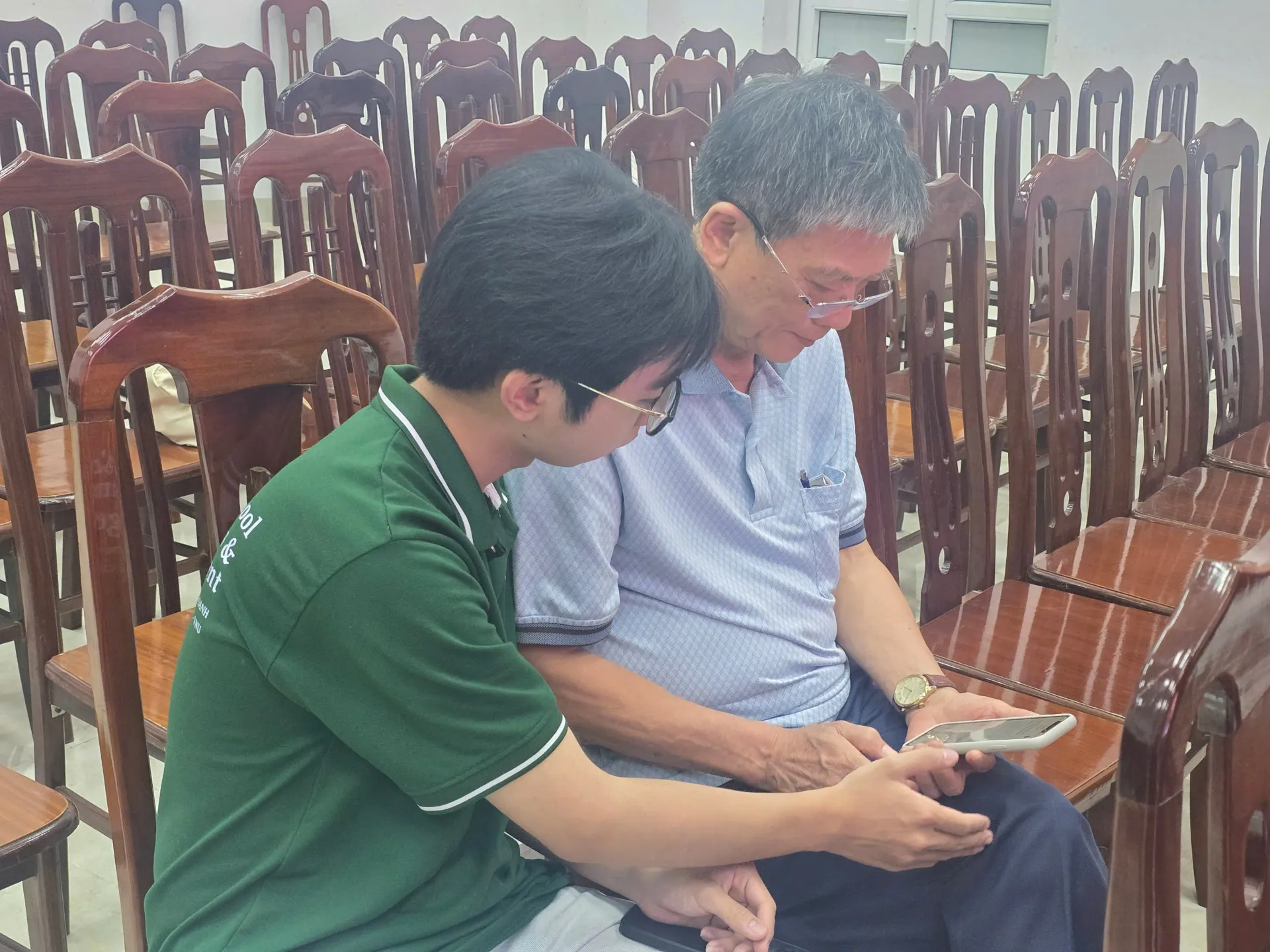
A young volunteer helps an elderly learner during a class led by Dinh Ngoc Son.
Authorities in Hoan Kiem District have set ambitious goals to promote digital skills across the community to ensure that 95% of officials master essential tech knowledge, 100% of secondary students integrate digital tools into their learning, and 85% of adults use digital platforms in their daily lives. The district also aims to train 80% of workers to use technology in their jobs.
At last week's campaign launch event, Pham Tuan Long, Chairman of the Hoan Kiem People’s Committee, described the initiative as a "strategic step" toward establishing Hoan Kiem as a "model of digital transformation in the capital."
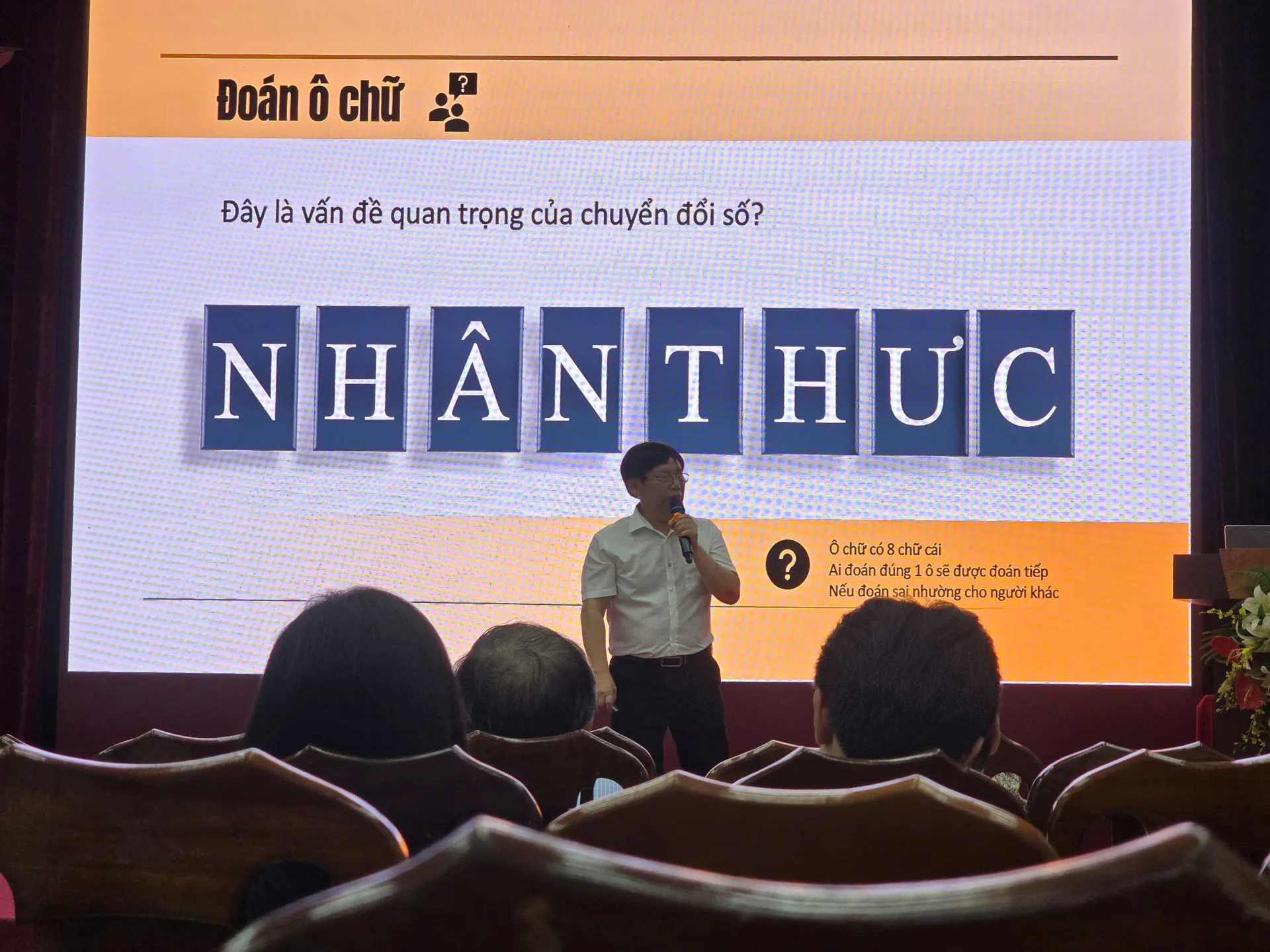
In Tay Ho District, digital skills training for the elderly has also been systematically carried out. Participants learn how to use platforms such as VNeID, iHa Noi, Zalo, Facebook, and AI applications. Local youth union members provide hands-on assistance to help bridge the digital divide and promote a culture of learning in the community.
Nguyen Hong Son, Director of the Hanoi Department of Science and Technology, shared with The Hanoi Times that the “Digital Literacy for All” campaign is a long-term journey, laying a solid foundation for digital citizenship, which is vital to Hanoi’s sustainable development and deeper integration in the digital era.
Outreach teams in both urban and rural districts are going door to door, holding street workshops, and collaborating with community leaders to educate citizens who have never used a smartphone or logged into a website.
This wide-reaching effort has brought digital knowledge to distant corners. In My Duc District, the local government plans to finish training residents in four more communes by 2026. Meanwhile, the Phu Xuyen District has introduced a "Digital Ambassador" model, enlisting the help of teachers, students, and businesses to support community-based training and establish a lasting collaborative network for sharing digital knowledge.
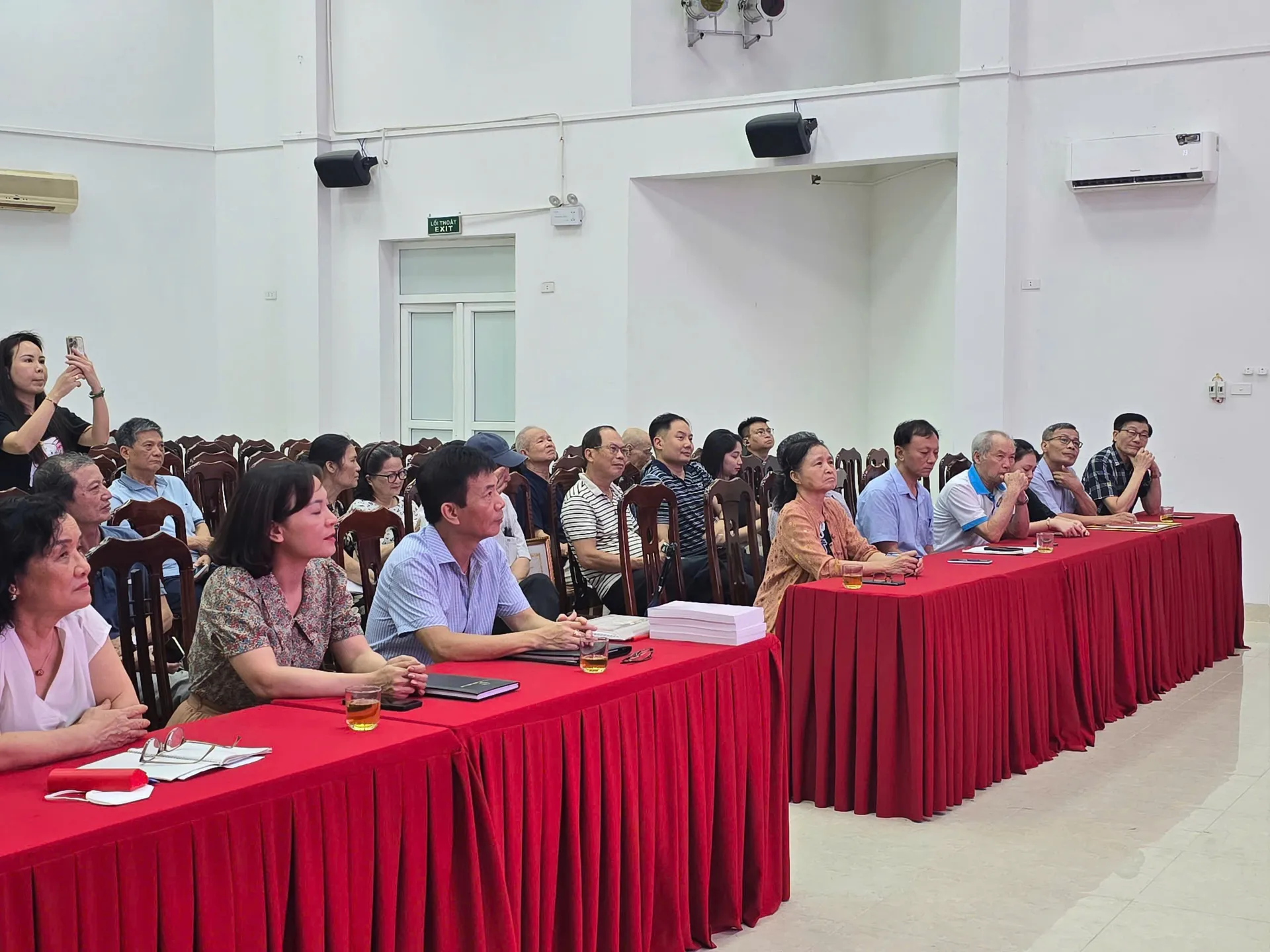
The elderly attentively listen to instructions on using digital devices and AI tools.
For seniors like Toan, the learning curve is steep but rewarding. “I used to think all this was too complicated for someone my age. Now I talk to ChatGPT every week.”
As cities around the world deal with aging populations and rapid technological change, Hanoi’s inclusive approach is garnering attention. By focusing on accessibility, empowerment, and intergenerational collaboration, the capital city is setting an example of what people-centered digital transformation can look like.
For instructors like Dinh Ngoc Son, success isn’t measured by the number of apps downloaded or accounts created. “It’s when a senior tells me they no longer fear technology,” he said. “That’s when I know we’ve made a difference.”
For the seniors of Hanoi, the message is plain: the digital world isn't just for the young but for everyone.





